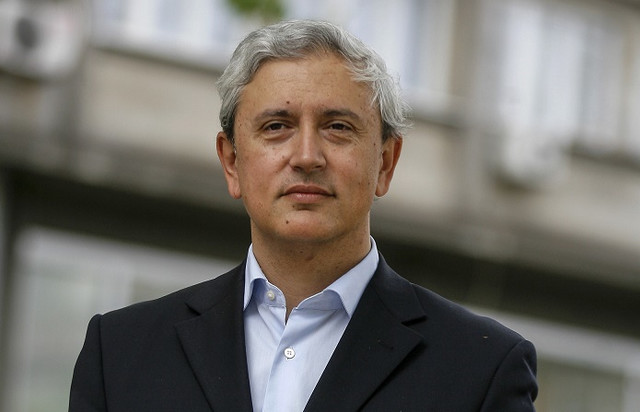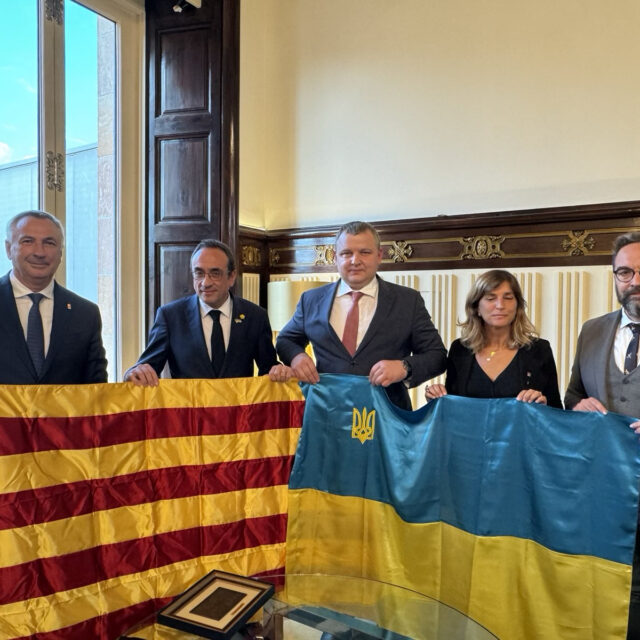Interview with Dr Vladimir Krulj, Economic Fellow of the Institute of Economic Affairs, London.
The next six months will be essential for both the European Union and the countries of the Western Balkans aspiring to join the EU, according to European Commission President Ursula Von Der Leyen. She was speaking in Zagreb at the start of Croatia’s Presidency of the EU, and she committed to drafting a new enlargement strategy in the next few weeks, in order to pave the way for a successful EU-Western Balkans Summit which is due to be held in Zagreb on 6-7 May.
I asked Dr Vladimir Krulj, Economic Fellow of the Institute of Economic Affairs, London, for his views on the prospects of unblocking the membership path for North Macedonia and Albania by the time of the special Balkans summit.
“In October, France vetoed the EU’s original strategy to start accession negotiations with North Macedonia and Albania during the first half of 2020,” said Krulj. “Macron demanded tougher scrutiny to ensure these countries respect the rule of law. The European Commission is working on a new proposal that will change how the EU vets aspiring members, and ensure they meet the entry requirements. But EU capitals have yet to agree on the Commission’s proposals.”
Croatia is running the EU Presidency for the first time, and they have a newly elected President who came to office at the beginning of this month. What is your take on Zoran Milanovic?
“Croatia’s new president is modern, pragmatic, pro-European, direct – some analysts in Croatia say that he is even too direct,” says Krulj. “Zoran Milanovic, is an experienced politician and a former prime minister, who has made a comeback after being out of politics for three years.”
“However a more intriguing question is that he is the third President in Croatia in the last 12 years. This is something that is almost impossible to imagine in Croatia’s neighbouring countries which are loosely described geographically as the Western Balkans.”
Last week Croatian Prime Minister Andrej Plenkovic was in Strasbourg to present the priorities of the Croatian Presidency to the European Parliament under the strapline “A Strong Europe in a World of Challenges”. That work is continuing this week with Croatian Ministers presenting to the committees of the European Parliament. But, what kind of message should the Presidency be sending to its partners in the countries of South-Eastern Europe?
“These countries are in the European entrance hall,” said Krulj. “People in the Balkans have little time for encouraging messages. They need a solution and it needs to be swift. Yes there are problems, a lack of media freedom, absence of rule of law, questionable economic reforms, frustrating intervention of the state security agencies in the lives of ordinary people, and a serious brain drain with intellectuals, and academics leaving their countries to pursue careers in the West. Many are discouraged by the opinions expressed by Western leaders such as Johnson, Orban and Macron.”
“It is important to now give these countries a genuine perspective that if they continue with painful reforms and meet the membership criteria, they will be welcomed and that their European perspective will be clearly defined,” he said.
“In the absence of EU leadership, the real winners at the moment seem to be the Russians and the Chinese, who are stepping into the gap that has been vacated by Europe. Russia is profiting by creating instability in the region, and China by heavily investing in all of these countries creating the possibility for the Chinese to exert further political pressure on governments in the region to sell off their state owned industries and infrastructure projects. They have a psychological advantage in that they understand the mentality of former communist countries and their governance in respect of politics and the economy. It can be argued that precisely for that reason, they have an inside track for any privatisation process in the region.”
The jury is out on whether the EU can come up with a convincing package for the May Zagreb summit. What is your prognosis?
“Some analysts suggest that the EU should come clean and admit that at the present time it is not able assist with the same level of solution that might have been possible 10 years ago.”
“ They even suggest that it is maybe time for all of the crucial actors to give the steering wheel to the US and to Matthew Palmer, the US special representative for the Western Balkans and President Trump’s special envoy for Serbia and Kosovo.”
“There is a lot riding on the Zagreb summit in May. We have a new team in the European Commission, and a young modern pragmatic leadership in Croatia for the Presidency. If we cannot make real progress with enlargement of the EU to South East Europe this time round, with the Presidency held by a Western Balkan country that has been through the membership process themselves, then we need to rethink the strategy. But let us push forward with optimism, and aim for a successful outcome.”




